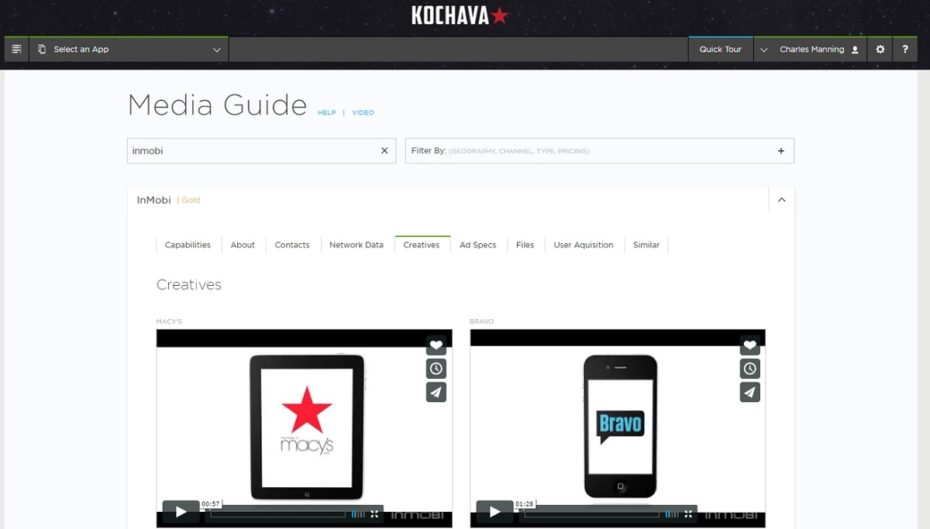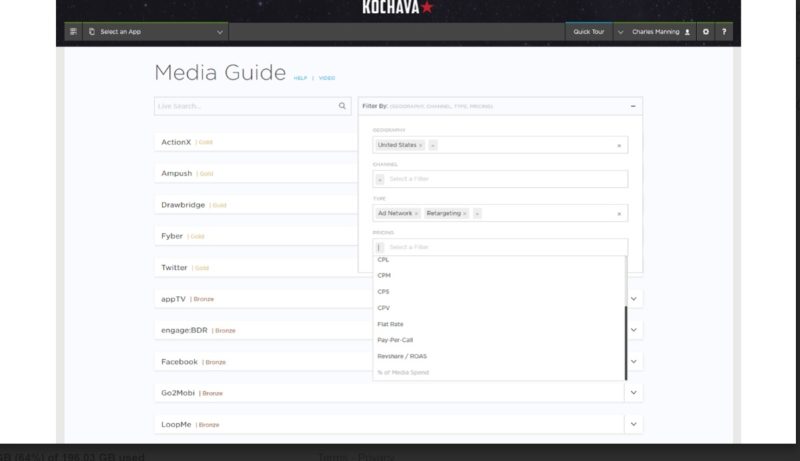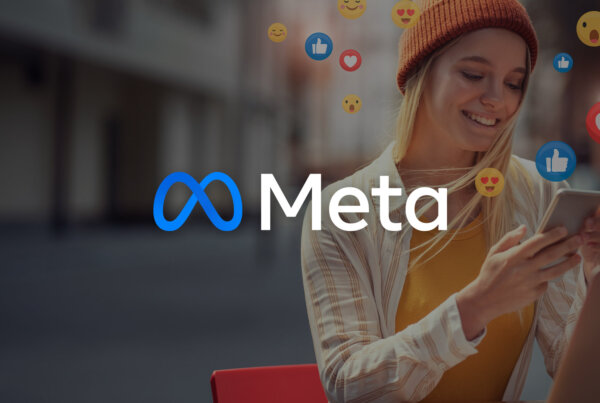We are very excited about what the release of Media Guide means to advertisers. Advertisers have long asked for a way to research and find new media to run with, especially for specific targeting goals. With Media Guide, advertisers can do everything from research new traffic to track reengagement campaigns, all without leaving the Kochava platform.
Dean Takahashi, from Venturebeat, spoke with Charles this week and wrote up a great article on Media Guide. It is reprinted below for your convenience, or you can read the original here.
Mobile services vendors are trying to become one-stop shops for mobile game and app publishers and advertisers. And that’s why Kochava, which has its roots in mobile attribution and analytics, is now providing a “closed-loop” marketing platform where mobile advertisers can search and discover vendors in the Kochava Media Guide.
The guide accesses more than 50,000 vendors who are vying for an advertiser’s attention. And the Sandpoint, Idaho-based company has integrated the guide within the Kochava system to enable advertisers to research, plan, execute, and measure their mobile campaigns from a single dashboard. It’s a vast amount of data.
“The question for advertisers is how do they navigate all of the ad networks out there,” said Charles Manning, Kochava CEO. “You want to see information like inventory, click-through rates, conversion rates. But we as an industry are still very immature. If you are new and have a budget to spend, it’s hard to decipher. That’s why we came up with this media guide.”
If this sounds familiar, numerous companies — such as Tune and Tenjin, which raised $2.5 million yesterday — are trying to do the same thing. But Kochava has something unique, Manning said.

Kochava is using a combination of its own proprietary data as well as data from Thalamus, the largest research database of ad vendor data. Kochava has secured a license for a couple of years to be the exclusive supplier of that database for the mobile attribution market.
“We augmented this with our own data,” Manning said.
As you flip through the Media Guide, you can find out more about each ad network. You can look up contacts, their creative formats, ad specs, and user acquisition details. The ad specs tell you what size banner ads you have to create, and you can see examples of the kind of creative ads that are available. At a glance, you can see network data such as the geographic breakdown, number of monthly impressions and uniques, and the mobile/web ratio. And you can see facts such as pricing models targeting, and industry focus.
“You can dissect it by network and sales and discover what is delivering the best results for you,” Manning said.”
Advertisers who are planning campaigns can discover new mobile ad vendors based on specific criteria or markets, evaluate their capabilities, and communicate directly with them — all without leaving the Kochava platform. Advertisers are able to leverage this research data and pre-campaign communication in the existing core interface of the Kochava measurement, tracking, and analytics suite.
Advertisers can begin using the Kochava Media Guide immediately, free of charge. But you can only use it if you are a Kochava customer. It is not available as an open resource for the whole industry. Used with Kochava’s The Collective matchmaking service, it can be a good tool for mobile advertisers, which include mobile app and game developers, Manning said.
“It’s another element of the secret sauce for customers who use Kochava,” he added.
The Media Guide makes the discoverability of ad vendors simple and exact, with the ability to research and define campaign goals, filter down vendors based on what’s most important to you, contact them, execute campaigns, and track results. Core research functions include geography, channel, type, and pricing. Kochava provides a badge system to rank networks in the Media Guide, from Bronze to Platinum, based on their depth of integration and the types of data the network passes back to Kochava.
Those rankings are a way for advertisers to figure out which vendors they should consider.
“This is like the beginnings of a ratings agency,” Manning said.







